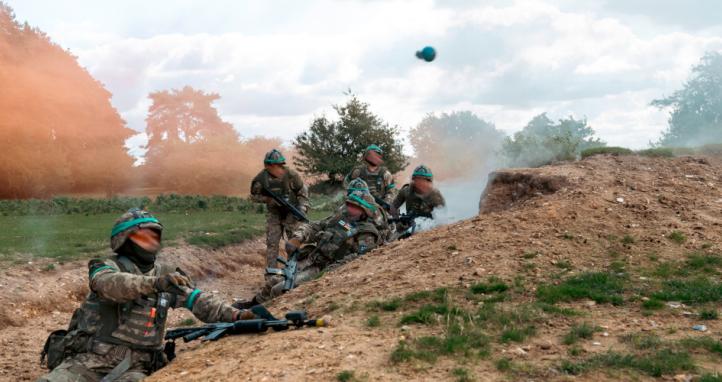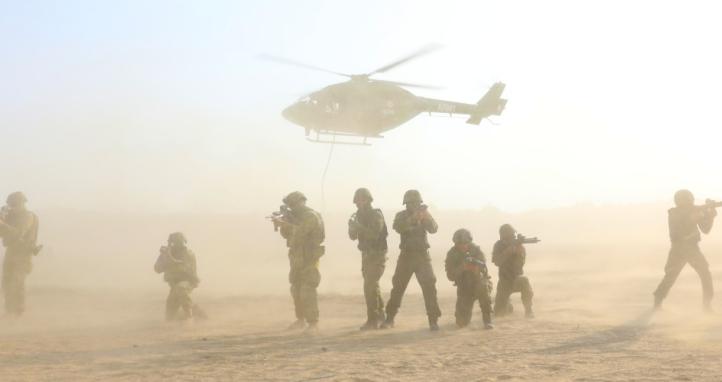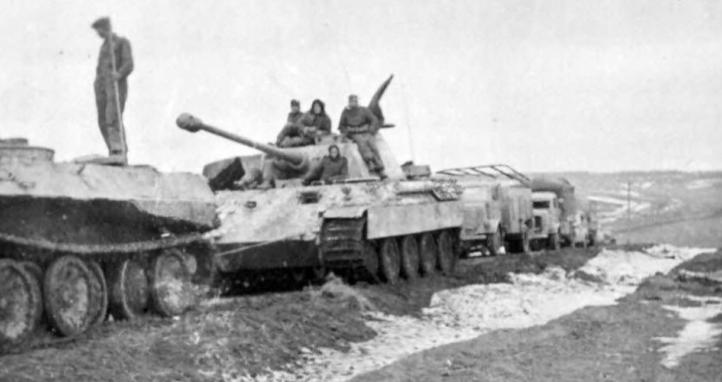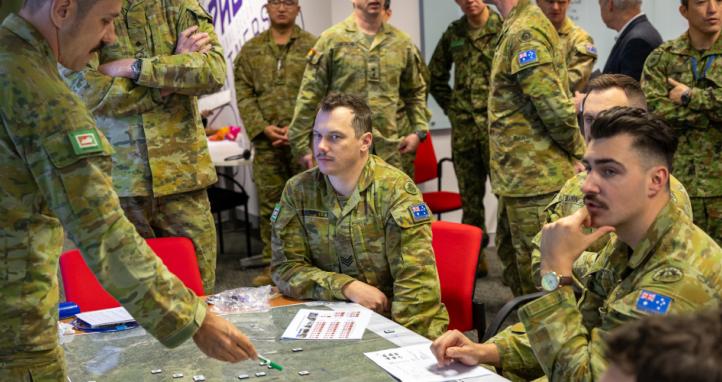This is the situation that Wolfgang Faust, Panther crew commander and author of The Last Panther found himself in as World War 2 was drawing to a close. Struggling to survive on the Eastern Front, as the remnants of the German force he was part of attempted to break out of ‘The Kessel’. He was hoping beyond all else to avoid certain death or enslavement by the Soviets and instead, surrender to US forces to the West of the river Elbe.
Put yourself in this situation. The chaos of war has taken control of civilised society. You are no longer fighting for any grand strategy or mission, you are literally only fighting for your own survival. You have no food, limited water, limited ammunition; you are caged in by an enemy you know will kill you in horrendous fashion if they catch you. You and the remainder of your force are interspersed amongst thousands of refugees and your only hope is to survive what many would consider a suicide mission to break out and flee to surrender to a lesser of two evils. How far would you be prepared to go to survive? How far would your moral compass slip? Could you live with the decisions you would have to make?
At a mere 142 pages this is a book that many could knock over in a weekend, but as one member of The Postern Book Club stated ‘you may need a Valium to deal with the trauma and scale of human brutality’ expressed across its pages. There’s no doubt it packs a punch, but whilst brief its lessons are innumerable.
Particularly for members of a small military like ours, the scale of conflict on the Eastern Front, expressed in gruesome detail in this memoir, provide lessons regarding strategy and tactics that we simply will not find through reviewing our own military history alone.
It provides a cautionary tale that once the dogs of war are unleashed, even if originally from a sound moral framework, we can never know where the chaos will end and how far cultural and individual ethics can fall. So we must protect against this as far as practicable, by remaining vigilant to slipping morals and standards and continuing our focus on developing ethical servicemen and women with the skills to make appropriate decisions when none of the options are right. And decision makers with the power to send us to war should continue to take heed of Churchill’s famous affirmation 'meeting jaw to jaw is better than war'.
It also makes us consider the issues of veteran and more broadly civilian well-being after conflict ends. How do we rationalise the things we’ve seen and done when we return to our civilised lives? How do those innocent bystanders to the brutality of war do the same?
This book was recommended to The Postern Book Club by Chief of Army Lieutenant General Angus Campbell and we thank him for it and his contribution to our discussions around its many teachings. Now we commend it to you.
Rating: 5 out of 5 Tank Destroyers
About the Postern Association
The Postern Book Club comprises a small collective of enthusiastic Army (and 1 RAAF) personnel spread across the country (and the UK), who meet monthly via the power of the internet to discuss texts of military relevance. This gathering is part of The Postern Association's broader strategy to enhance the ADF’s intellectual edge. In January we’ll be discussing Sebastian Junger’s – Tribe if you’d like to be involved, reach out to The Postern Association.









